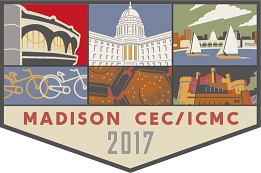Speaker
Description
Cryogenic low noise amplifiers (LNAs) find regular use in a wide variety of applications ranging from radio astronomy to quantum computing. When operating at physical temperatures below 20$\,$K, amplifiers based upon InP high electron mobility transistors (HEMTs) and SiGe heterojunction bipolar transistors (HBTs) regularly achieve noise temperatures about an order of magnitude above the quantum limit. These amplifiers have typically been used in relatively simple systems, where the power consumption of the amplifiers was of secondary importance. As such, commercial cryogenic LNAs have not been optimized for power and typically consume 5$\,$mW or more. Future systems that are desired for THz radio astronomy and quantum computing will require that a thousand or more amplifiers be integrated within a single closed-cycle cryostat. As the maximum power that can be removed from a typical 4$\,$K closed-cycle cryocooler is limited to about 1.5$\,$W, the power consumption of the LNAs will be limited to a small fraction of this number.
In this paper, we will review our recent efforts towards minimizing the power consumption of silicon germanium cryogenic low-noise amplifiers. First, a discussion of the relationship between power consumption and performance for both InP HEMTs and SiGe HBTs will be given and it will be shown that SiGe HBTs have the potential to operate at near optimum noise performance with microwatt level power consumption. Next, several proof-of-concept ultra-low-power discrete and integrated circuit LNAs will be presented. Finally, the paper will conclude with a description of a THz heterodyne receiver that leverages this technology to realize a single pixel that operates at DC power consumption of just 300$\,\mu$W.
